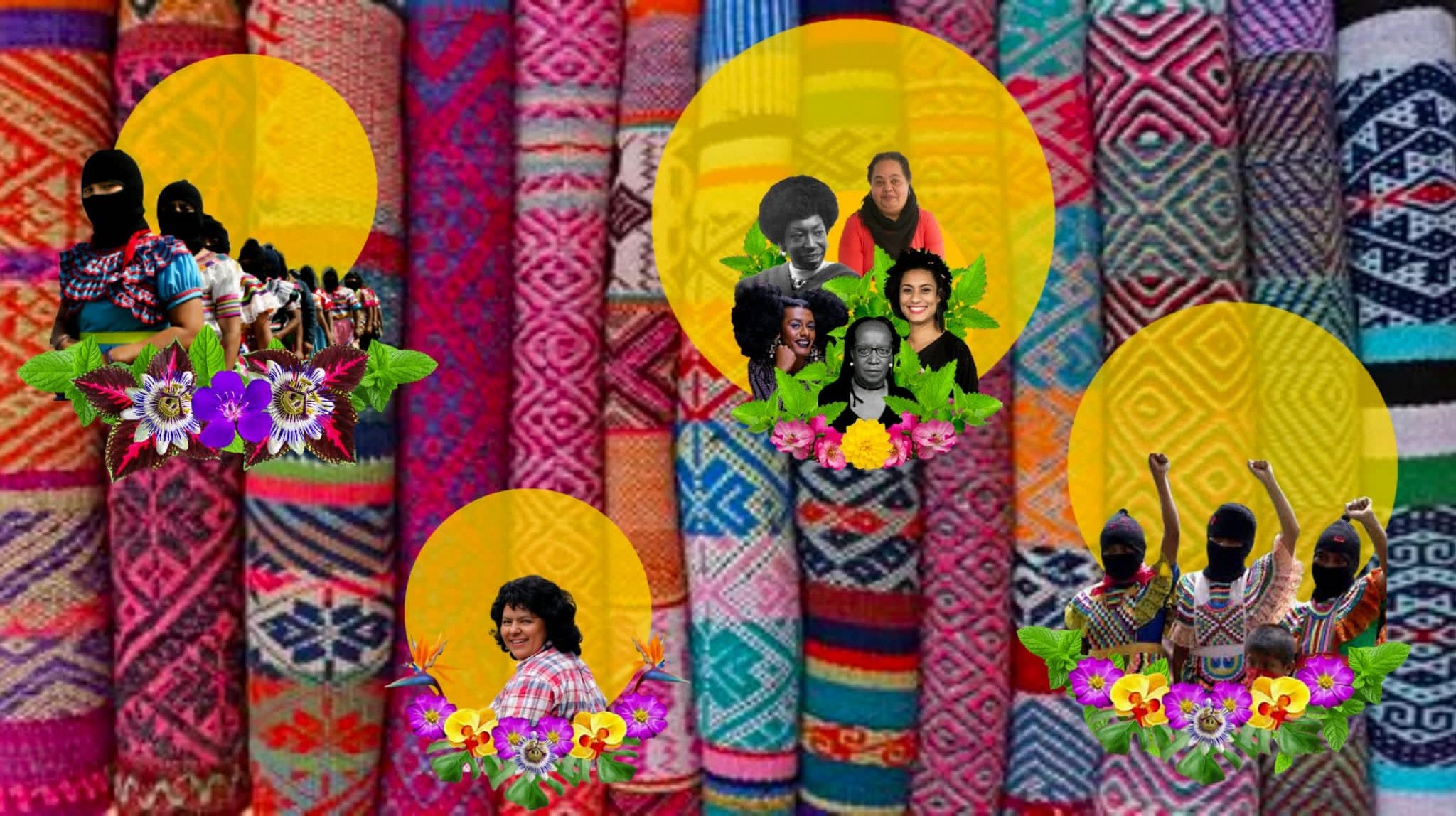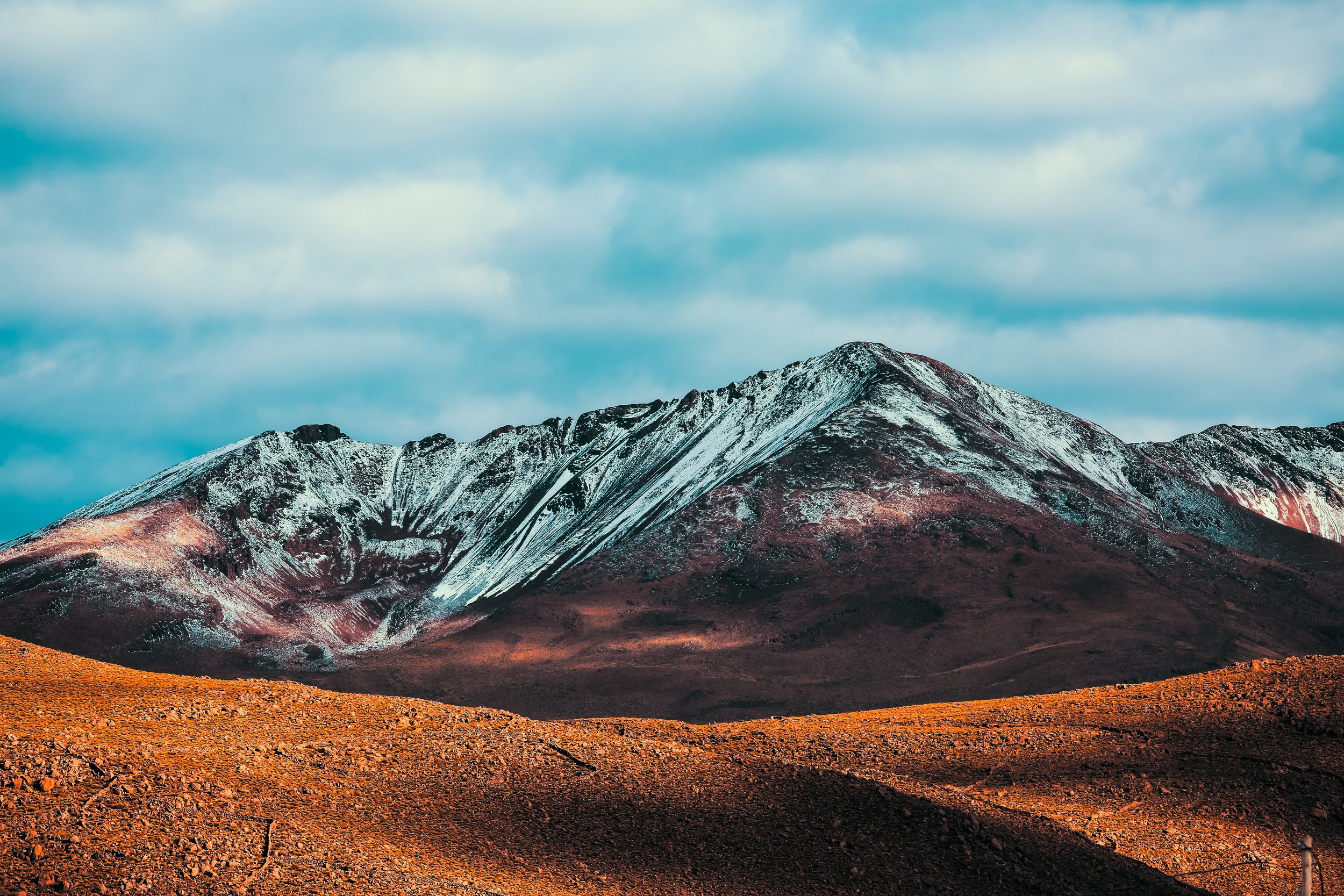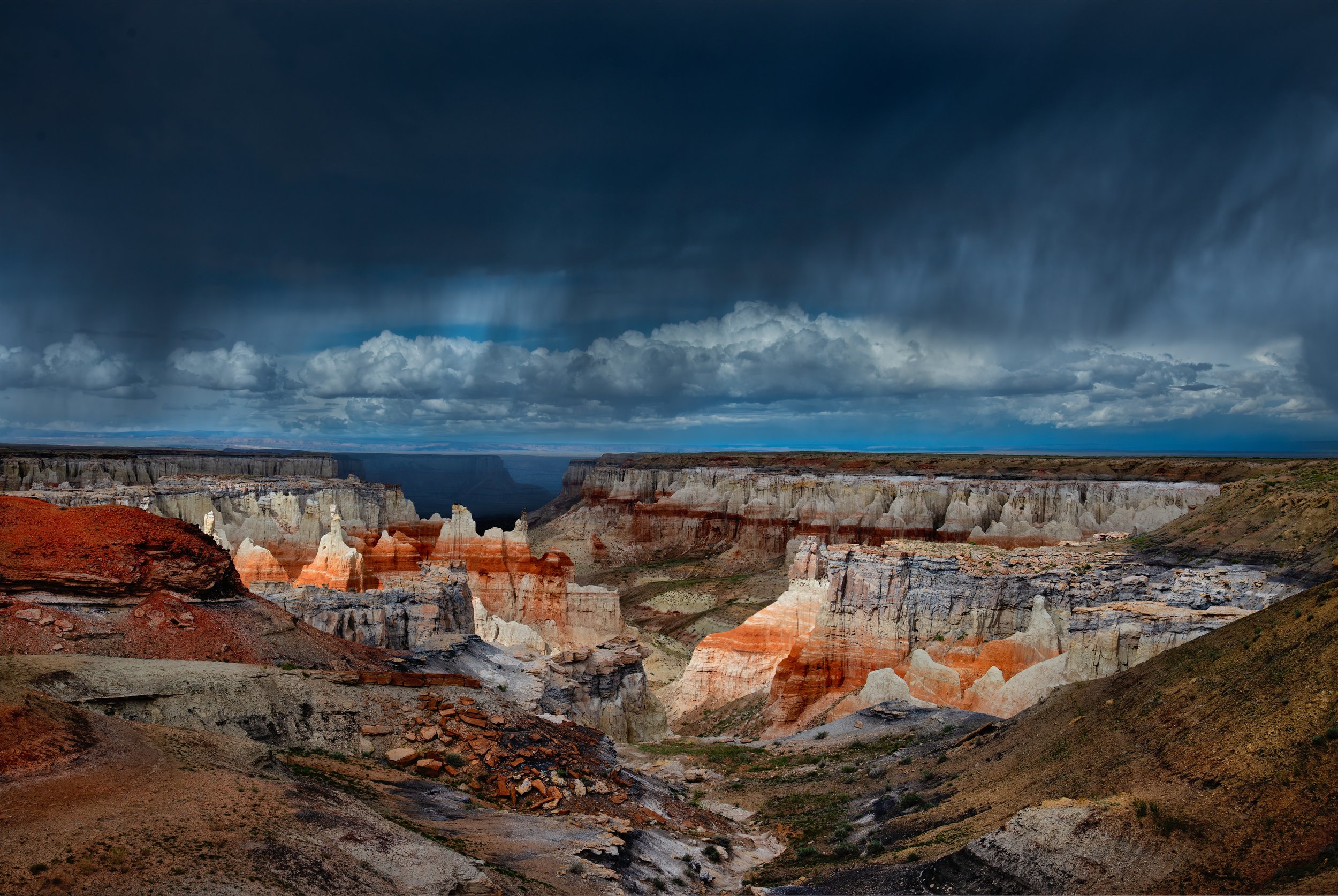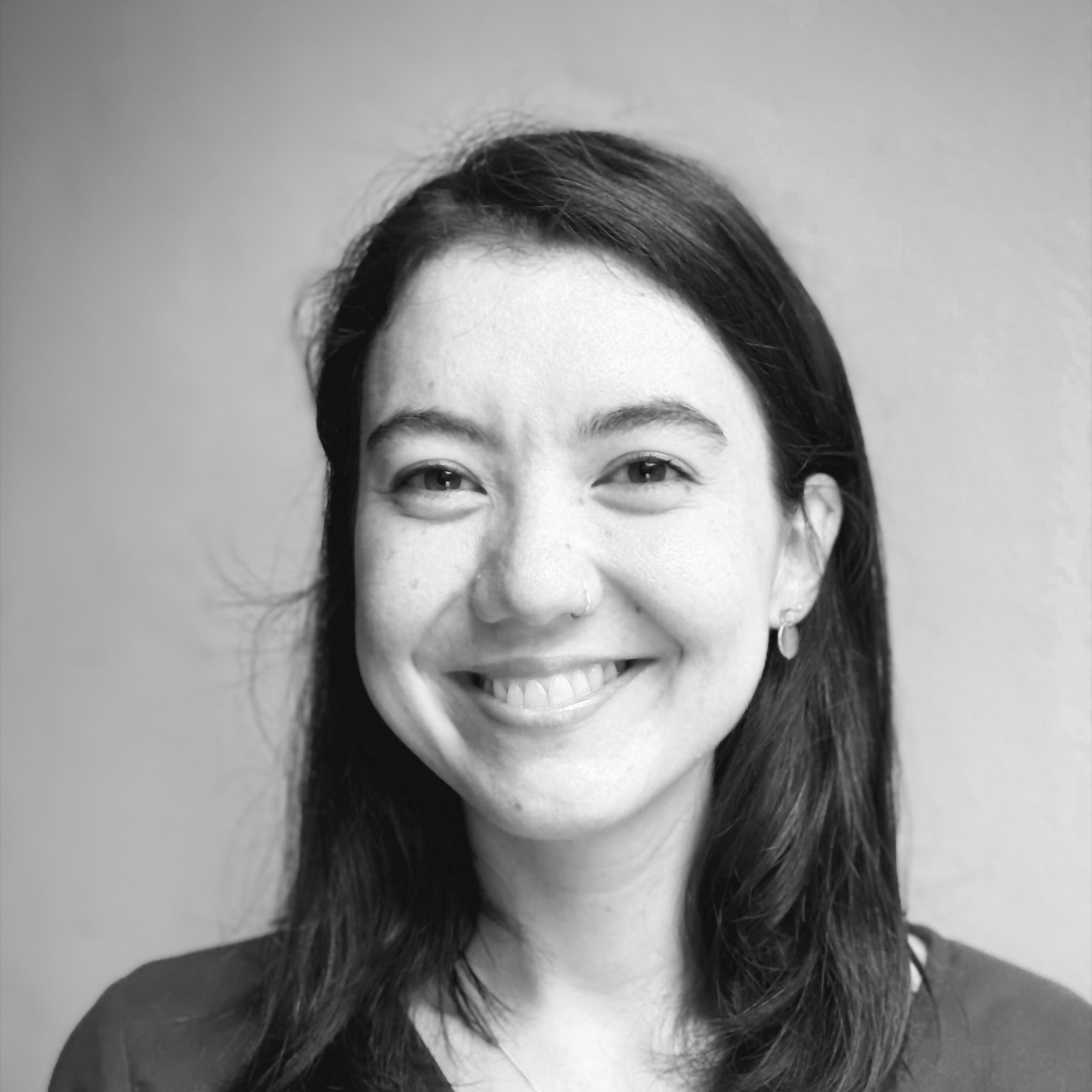
Principles for Engaging with Traditional Ecological Knowledges in Urban Systems
August 2023
Art by Angela Camacho

Contributors
Abdirahim Hassan
Angela Camacho
Araceli Camargo
Grace L. Carson
Hannah Yu-Pearson
Dr Nataly Allasi Canales
KEY TERMS
Before we move into the principles, we have to establish a baseline for the terms used in this project.
-
We are using this term to refer to Peoples who are the Ancestral inhabitants of Lands colonised by Europeans and other groups seeking to establish settler-colonial nation-states. Therefore, it is not tied to one experience, race, culture or ethnicity. Through colonisation and the establishment of settler-colonial nation-states, Indigenous Peoples have experienced continual genocide, slavery, and displacement. Despite this Indigenous Peoples continue to evolve and exist on Indigenous territories worldwide- “we are still here”. Indigenous persecution and colonisation continue to be enacted due to the advancement of capitalism and the occupation of Ancestral Lands. The term Indigenous is contentious and problematic for many reasons, firstly, it’s rooted in European epistemologies, which aim to divide and “other”. In the Americas, it has been used to distinguish between those kidnapped from Africa, white europeans settlers/colonisers/criminals and those birthed from the Soils of Turtle Island and Abya Yala. This distinction has not only created racialisation, it has also seeded Anti-Blackness within Indigeneity, which this project wholly rejects- we are Pro-Black.
Secondly, it is a term that identifies us from an ego-centric and white-gaze perspective. Erasing our Beingness and state of relation with our Lands. As Aymara scholar, Yaneth Katia Apaza Huanca puts it “Being an Aymara is not the same as being an Indian, an Indigenous people, a peasant, an ethnic group or a nation, all of which are abstract identities that anonymise”. Thirdly, not all Peoples who fit under the definition of Indigenous use this term to self-identify, therefore, it cannot be used as a blanket term for all Peoples. Given its problems and limitations, we are using the term loosely and with the acknowledgement that many might reject this term. Moreover, this project may one day move completely from this term as our Knowledges and decolonisation move forward.
-
Acknowledging that "Indigenous" might not be a universally used term by all Peoples, we are also using the term Land-Kinned Peoples (LKP). This is a working term for this project to bring a non-western gaze or allocentric term into the ether. Kinned, meaning a deep relationality to the Great Creators (Land, Water, Air) as well as our relations to each other as Peoples. It aims to be a more inclusive word, whilst still acknowledging the settler-colonial experience faced by our Peoples. Kinned is also in a verb format, which allows us to acknowledge that relations are a practice or action not just an identity. As it is a working term, it will evolve as this project collides with further Imaginations and Knowledges.
-
It is the aggregation and continual evolution of Knowledges that belong to Indigenous and Land-Kinned Peoples that are rooted in Kinship, mutualistic symbiosis, relationality, and reciprocity. We acknowledge that the word "traditional" poses a temporal limitation, meaning that it can denote that the knowledges are not-evolving or in-tune with the continual changes experienced in ecosystems.
-
It is the dysregulation of planetary ecosystems due to the systemic contamination of Soil, Water, and Air that is driven by capital generation. Planetary dysregulation leads to changes and or death of biodiversity, which in turn leads to changes in climatic systems.
-
This includes all systems related to cities, such as transport, green spaces, housing, common spaces, zoning, water, sewage, roads, streets, hygiene, and so on.
-
A hierarchical system that upholds human intelligence above all others. It strives to remove the "Beingness" of those who do not fit within their systems, including Peoples, Soil, Water, and Air. It centres power and wealth over health, justice and dignity. Divides Peoples and separates Peoples from Nature. The invention and propagation of injustice. It erases the existence of other epistemologies and realities

Introduction to the Principles
These are working principles set forth by a group of Indigenous Peoples and Land-Kinned Peoples (IP & L-KP) who gathered in the UK. We see this both as a starting point and an evolving process. These principles are the first iteration, as they interact with more Peoples they will change and evolve.
To keep the integrity of the principles, it is essential that we set four caveats.
This is not intended as a universal set of principles. Meaning that each group of Peoples and communities should be consulted so they can add or contest this set of principles. We all have various Knowledges, Imaginations and needs which should be acknowledged.
This is meant to be used as a starting point for building a just and equitable relationship between urban system practitioners and IP & L-KP. This requires local engagement in order to fully understand how to integrate Traditional Ecological Knowledges into urban systems. To be clear these principles should not be applied without local Knowledges.
This does not give insight into IP & L-KP, therefore these principles should not be used as a substitute for building direct relations with IP & L-KP. We are a wide spectrum of Peoples impacted by colonisation in a multitude of ways and being part of a multitude of Knowledges, ecosystems, and experiences. Therefore knowing some of us does not mean knowing all of us. Finally, this document is not intended to speak for or on behalf of IP & L-KP, it is simply a sample of what can be possible.
The final caveat is that we aim to be in Kinship with all habitats, including cities. However, this does not mean TEK will be used within the oppressive systems that seek to marginalise all Peoples. This is not about “ a seat at the table” for TEK, instead, it is to seed new Imaginations, systems, and possibilities to create a life of dignity for all Kin living in cities, including other-than-human beings.

Principle 1
KINSHIP
All living beings on this planet are in relation to each other. From the water that provides us all with nutrients and hydration, to the trees that provide us with the air we breathe, to the microbes in our air and soil that once ingested help us all build our gut environments for immune and digestive functions. Through these connective pathways, we are all Kin, co-existing for each other’s survival on this planet.
For a more in-depth analysis of Kinship practices, please refer to Centric Lab’s report on Mutualistic Symbiosis With Nature.
-
To be in Kinship is to know each other deeply. This is through understanding the needs, essence, and relations of our Kin. It is not enough to simply categorise other-than-human Nature, we must know them in relation to their habitat and the wider ecosystem. Planting trees on a street, for example, is not enough without knowing what microbes are needed in the soil, the amount of water they need, and the other beings in the ecosystem needed to keep them nourished.
-
Other-than-human Nature in urban spaces are also at risk of health problems due to urban heat island, contaminated soil, water and air. Additionally, trees are social beings whose roots need to be connected to other trees for nourishment and development. It is this type of local knowing and Kinship that is needed for urban spaces to be places of biodiversity.
-
Kinship should include listening and implementing local lived expertise. Giving people the dignity of seeing their imaginations included in the places they inhabit. Lived experience is a term used to acknowledge the Knowledges, methods, and practices that are cultivated by Peoples through living and interacting with specific habitats (and all of its components). The lived experience includes everyone living in a specific ecosystem, including Elders, children, and other-than-human Kin.
For further definitions and practices of Lived Experience, please read the report on Lived Experience and Community Health.

Principle 2
NOTHING ABOUT US WITHOUT US
This phrase has been used in various contexts by Peoples who have been marginalised by political, social, and economic systems. The saying is said to have been first used in Poland's 1505 constitutional legislation. It has subsequently been used as a cognitive framing for democratic norms all over the world. It is also well recognised by its South African context, which was used by disability activists Michael Masutha and William Rowland to birth and promote disability rights in their country. Its South African context travelled to the United States through the work of James Charlton, who used it in his disability justice work.
The term is now used widely and we are extending its context to urban systems. Meaning that no part of a city should be changed or designed without the full participation of all those who inhabit an area, this includes other-than-human Kin. In this context, TEK should only be implemented by Indigenous Peoples and Land-Kinned Peoples and using their methods and practices. It should also be inclusive of other-than-human Nature, listening to their needs for nourishment, health, and survival.
Components of “Nothing about us without Us”
-
Those who participate should be paid at the rate of professionals.
-
TEK are in the plural form, meaning there are multiple and will vary from one community to another.
-
TEK is a valid pool of Knowledges and Wisdoms that have been used for millennia contributing to the success of multiple large ecosystems such as the Amazon, Sahel, and Congo Rainforest - all which are paramount to the regulation and function of our planet. Therefore we must respect these Knowledges like we do all others.
-
Given the long-standing history of TEK, it is best poised to contribute to planetary regulation, which is the process of bringing planetary systems into balance. Cities around the world are polluted, infrastructure is old and not fit for purpose, biodiversity is in decay, and high urban health island threatens city life. All of these factors contribute to cities overheating, flooding, and even making it unsafe to breathe. Therefore, turning to TEK, which provides methods for creating habitats that are in mutualistic symbiosis with their wider ecosystems is a valid pathway forward.

Principle 3
MUTUALISTIC SYMBIOSIS
Mutualistic symbiosis is a principle that strives to be in deep harmony and reciprocity with all of Nature. For example, buildings from their supply chain, and materiality, to maintenance should add to their local habitats rather than contaminate or plunder Nature. In Chad, for example, Indigenous Peoples give space for Nature to regenerate, so after they inhabit a piece of land, it is more fertile than before.
The west has attempted to establish a universal perspective that in order to have “progress”, better cities, or exist as humans, we must accept an amount of collateral damage. However, this is only one perspective, many others exist that allow human life to evolve in mutually beneficial pathways with Nature.
Components of Mutualistic Symbiosis
-
Capitalism values growth for the sake of growth. This creates waste as there is no value in re-using or maintaining what we have. Additionally, part of the supply chain of capitalistic growth produces waste that is toxic to the environment.
Part of urban planning strategies should include how to build cities with no waste and learn how to reuse all materials.
-
All Peoples should have access to Land, for food creation, medicine, Kinship, recreation, and rest. In the case of Turtle Island and Abya Yala, we propose the implementation of “Land Back”. Which is not a change in “ownership” or simply the return to Ancestral Land, but a return to our Kinship with the Land. It is also freeing the Land from the oppression of white supremacy. This will require not just a change in policies but a whole new set of governance rooted in non-supremacy epistemologies.
-
Materiality is an important factor to TEK. It requires deep knowingness to understand how to build homes that are life-sustaining. At the moment in the UK, housing is not fit for purpose. They have poor ventilation, and insulation, and are located in cities that are filled with air pollution. This leaves people living in mouldy homes that trap high levels of air pollution. Furthermore, the materiality used causes endocrine disruption, which contributes to multiple poor health outcomes. Therefore, we need homes that are made from natural materials, thermally intelligent, and provide safety for all Peoples.
-
To construct in mutualistic symbiosis it requires to remove ourselves from profit. Homes should be made to sustain life not for the creation of profit and accumulation of wealth.
-
Capitalism has created an artificial sense of time that is in contradiction to body clocks and natural rhythms.
We propose “gentle time”. That allows us to listen to the rhythms and pace of Life. Aligning ourselves with Pachamama.

Principle 4
LOVE
Love as a practice is how a tree without asking provides us with nourishing air or bees provide us with biodiversity and an anti-inflammatory substance that boost our immune system. Therefore, we can say that the universe itself is an act of Love.
Components of Love
-
All beings in a city are alive and have their own spirit. The trees, wind, people, insects, soil and so on.
Even man-made objects like buildings can still have an element of “aliveness” as the spirit of the humans that built and inhabit it are within the building. Us, Indigenous Peoples & Land-Kinned Peoples, who often do the essential work of cities, our spirit is within all urban systems.
-
Policies and laws require a shift from supremacy over Nature, including People to one rooted in Love. In practice, this would mean that we have policies and laws that protect the right to exist with dignity, health, and justice.
-
This means being thoughtful of others, including other-than-human Kin and considering their needs before making decisions. We would extend the design, governance, and policies of urban systems.

Principle 5
DIGNITY
The state or quality of being worthy of respect, a life of wellness, and love. This is for people and other-than-human Kin.
Components of Love
-
The right of self-governance. The ability for Indigenous Peoples & Land-Kinned Peoples to govern all aspects of their society from food supplies, education, to healthcare.
-
Indigenous Peoples & Land-Kinned Peoples have long-standing Healing Imaginations and Knowledges that have been cultivated through deep knowingness of their surrounding ecosystems. We have plant-based medicines and somatic healing practices that have healed our Peoples for millennia. In fact, they are the reason our Ancestors survived colonisation and why we are still here. We have the right to be able to practise alongside western healthcare systems. Additionally, this also requires access to communal Land within urban systems so we can cultivate our Ancestral medical plants.
-
The ability and affordance to source nourishing food for healing and sustenance is a cornerstone to dignity. This ties to having access to the Land which creates pathways of knowingess; understanding the microbial composition of the soil, orchestration of all living beings in the food system, and committing to long term relationship with the Land.
-
Having the ability to move freely without danger, persecution, and within a timely manner is a basic human right. However, for many of us that is not the case. Whether it is poor, limited and expensive transport systems that make urban navigation difficult, or being systemically discriminated against to the point of facing violence as we move around a city, both impede our freedom of movement.
Many of us also have freedom of movement in our Ancestral lands without the gaze and limits of settler colonialism. Many cities from Los Angeles, Lima, NYC, Vancouver, to Mexico City work systemically to exclude Indigenous Peoples from urban places, policing and dictating where we can and cannot move.
-
We have our ways of constructing and perceiving reality that are not the same as the dominant western knowledge system. Part of our dignity is to see our Imaginations implemented in the places that we live. Multiple Imaginations are possible, including other-than human Imaginations.
-
Indigenous Peoples & Land-Kinned Peoples should have the dignity to access life-sustaining resources like clean water, air, and soil throughout our lifetime. Due to various systemic injustices, this is currently not the case.
Thank you for reading this report please note that we are a non-profit grant and citizen supported lab, we use our funding to create free scientific reports, which provide foundational knowledge about health, health inequities, and health justice. We prioritise the hiring of scientists and researchers from marginalised communities to ensure that the lived experience is covered in an ethical, inclusive, and accurate manner.
Our goal is to be an open lab that is “for the people by the people” and your support helps make that happen.






